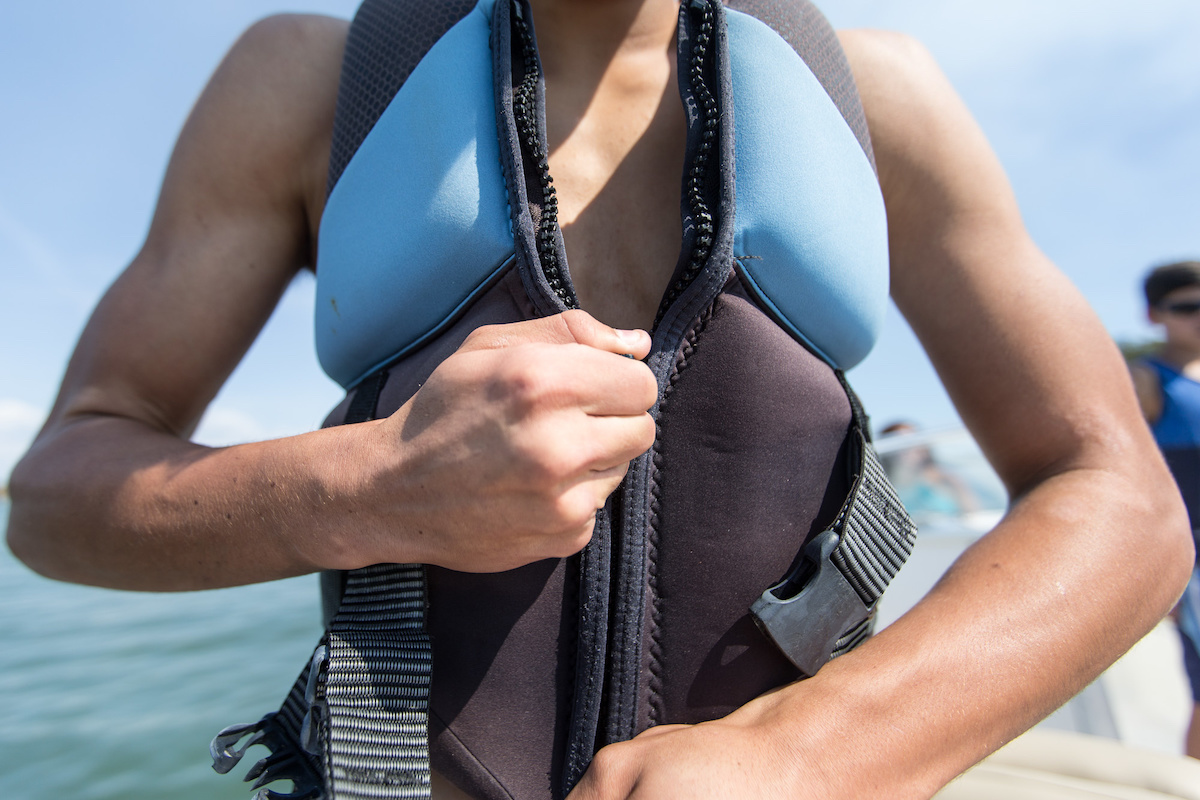Looking to elevate the fun factor on your boating trips? Consider adding a diving board to your boat for an extra splash of excitement! However, before taking the plunge, it's crucial to be mindful of certain precautions and maintenance tips.
Boat Diving Board Considerations
Not all diving boards are created equal. Before you buy, ensure the board is designed for your specific boat type. Additionally, consider your typical boating environment. Calmer waters allow for more flexibility in board choice, while rougher conditions demand sturdier models. In some cases, depending on the water you typically encounter, a diving board might not be the safest or most practical choice.
Diving boards add a splash of excitement to your boat, but they also require additional care and maintenance. Here are some things to keep in mind:
Diving boards are often found on pontoon boats, houseboats, luxury yachts, and larger recreational vessels. Generally, this is because their decks are bigger and more accommodating (to both the diving board and the people jumping off it). Smaller boats — like fishing boats — usually don't have diving boards because they don't have enough deck space.
Diving boards can put pressure on your boat's deck. Therefore, you must ensure your boat is strong and structurally sound enough to support the extra weight.
Boat Diving Board Rules, Guidelines, and Expectations
With great fun comes great responsibility! And setting clear rules and guidelines for diving board use is incredibly important (especially for kids). Here are some examples:
- Always wear a life jacket: It's crucial to wear a life jacket to keep yourself safe in the water, even if you're a strong swimmer. Unexpected currents, falls, or sudden changes in weather can leave you vulnerable.
- Don't dive head-first into the water: Entering the water head-first can lead to serious injuries, especially in areas with unknown depths or underwater obstacles. Always enter the water feet first, checking the depth beforehand.
- Only allow one person on the board at a time: Overcrowding a diving board increases the risk of falls and injuries. Enforce a "one person at a time" rule to ensure everyone's safety.
- Never use the diving board while the boat is in motion: The boat's rocking motion combined with the springboard's launch can easily lead to slips, falls, and collisions. Only use the diving board when the boat is anchored securely and clear of other vessels.
- Keep a first-aid kit on board: This will allow you to be prepared in the event of minor injuries. Be sure to stock your kit with essential supplies like bandages, antiseptic wipes, pain relievers, and any necessary medications.
Maintenance and Upkeep for Your Boat Diving Board
As we mentioned, adding a diving board to your boat requires some maintenance! Here are the routine measures you should take to keep your diving board functioning as it should:
1. Regularly Inspect Your Diving Board for Any Signs of Damage
Be on the lookout for cracks, loose screws, and missing parts. As the boat owner and operator, you're responsible for maintaining the boat diving board and ensuring it functions as it should.
2. Clean It Regularly
Dirt, grime, algae, and other bacteria make diving boards slippery. To prevent accidents, regularly clean the diving board with water and mild soap.
3. Put It Away When Not in Use
There's no need to keep your diving board set up year-round. To elongate its life span, we recommend storing it during the off-season. Choose to store it in a dry location with good airflow—this protects it from the elements and reduces the risk of damage.
4. Condition the Diving Board Regularly
To keep your boat diving board in tip-top shape, lubricate its moving parts with a thin oil or environmentally safe grease. Not only does this prevent the diving board from squeaking, but it ensures it is functioning at its best.
Check Out Our Boating Resources and Guides
Ready to install a pontoon diving board? Hopefully, this article helped you choose a diving board for your boat and learn some necessary supplies and maintenance tips.
Want more boating tips or resource guides like this one? Head to the Discover Boating blog for more helpful boating guides.


